I attended the “Is Peace Possible?” event on Feb. 17, expecting to disagree with the speakers on several key issues such as the level of destruction, unequal retributive justice and humanitarian concerns in the West Bank and Gaza Strip. I researched the two debaters, David Makovsky and Ghaith al-Omari, and found them to be respected academics and political pundits specializing in Middle East affairs. I also noted, however, that they both work for the Washington Institute for Near East Policy, which activists have criticized for its pro-Israel-American slant and ties to AIPAC, the largest pro-Israel U.S. lobbying group. I was thus understandably hesitant to believe that the speakers would provide a fair and balanced view of the divisive Israel-Palestine conflict.
Yet, I went anyway, and I am glad I did. It’s when we feel most strongly about our opinions and predispositions that we should challenge ourselves to question them and engage in healthy conversation with those we disagree with.
While at the event, what stood out initially and stuck with me the most afterward was the lack of protesters who actually sat down and listened to the speakers. I was honestly expecting more of a Riley Gaines situation, in which a large portion of her audience attended openly in protest of her message.
Now, I will admit that scope, circumstance, magnitude and a plethora of other factors make Riley Gaines’ “Take Back Title IX” and Hillel’s “Is Peace Possible?” fundamentally different. Surely, they do not amount to a one-to-one comparison. However, what I found most valuable about Gaines’ visit to Trinity was the student mobilization and dialogue it fostered, something I found notably missing from “Is Peace Possible?”
This is not meant to critique any one group of protesters. Rather, I want to make the case that our time’s most sensitive and divisive issues require us to hear out the other side and find common ground with those we fundamentally disagree with.
When we refuse to hear someone out, we give them evidence of our ignorance. Why would we take someone who disagrees with us seriously if we feel they do not understand our stance? Refusing to listen to another’s position hurts our credibility in their eyes, as we may seem unable to back up our opinions when confronted with contradicting evidence.
James Kouzes and Barry Posner’s book on credibility states that “the secret to closing the credibility gap lies in a collective willingness to get closer, to become known, and to get to know others — as human beings.” Essentially, it is in sitting down and acknowledging one another, attending the talk of a speaker whom you disagree with, that we can develop credibility with those of different viewpoints.
Beyond building credibility, listening to the other side helps us develop more accurate and nuanced opinions. Confirmation bias, or the tendency to interpret information in a way that confirms what we already believe to be true, is widespread, and the algorithms controlling our news and social media apps reinforce it.
Conducting in-person research and hearing the rationale and actual beliefs of those with differing viewpoints — whether we buy into it or not — enables us to see a side to an issue that our algorithms may ignore. If we truly disagree with someone we listen to, then we will be better equipped to respond to such talking points in the future, or, even better, we will find points of concession that both sides can agree upon on which to build a stronger argument.
However, I do understand the protesters’ frustration. Why would they be inclined to attend an event where they have evidence of speakers’ potential bias? It may seem counterproductive to give our time and energy to potentially inaccurate or inflammatory discourse. Not to mention, there are many times when it is entirely valid for passionate individuals to refuse to hear out the other side, especially those directly affected. That said, if only for the sake of those most impacted, we as concerned students should hear others’ arguments to prevent a deadlock in dialogue.
The Israel-Palestine conflict is not one I will pretend to understand in its entirety — that would be rather ignorant. However, I do identify with students of all backgrounds and positions who see the toll of human suffering in Gaza, in the West Bank, in Israel, in Lebanon and know that little can justify such widespread pain and destruction.
I strongly believe, at least among my fellow Trinity students, that those staunchly on one side of the conflict or the other can come together and listen to each other. We are all reacting to the tragedies of the war and feel that we should be doing something more, but the most powerful response, in my opinion, is the building of grassroots-level coalitions among students with different backgrounds and perspectives. In order to do so, we should critically evaluate a wide range of perspectives on Israel-Palestine, question our predispositions and those of others and look for common ground and mutual goals. In short, it’s time for us to come together and talk about Israel-Palestine.

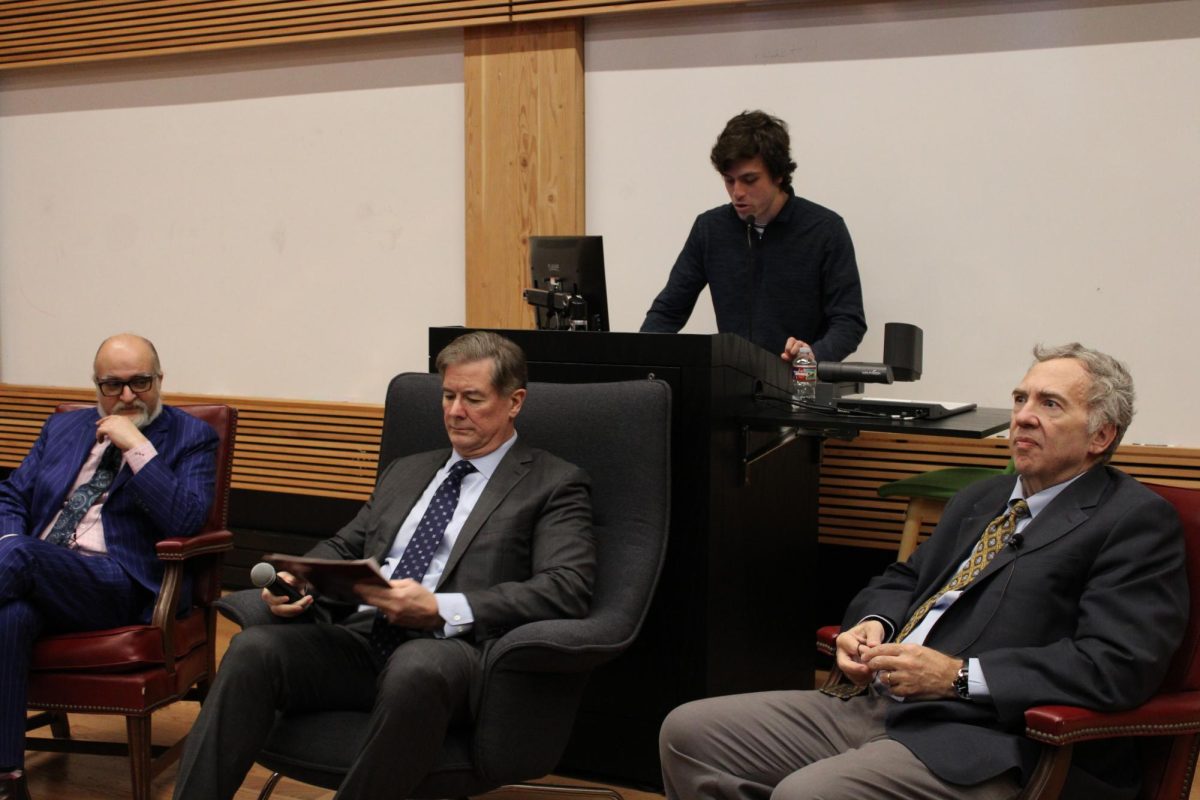
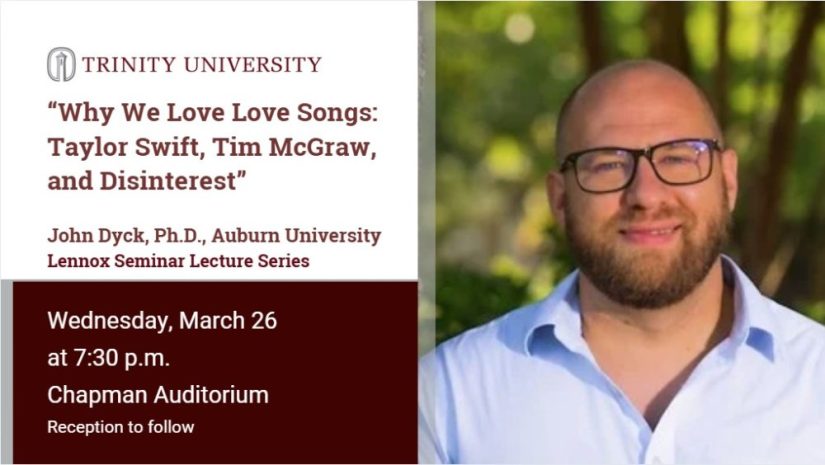
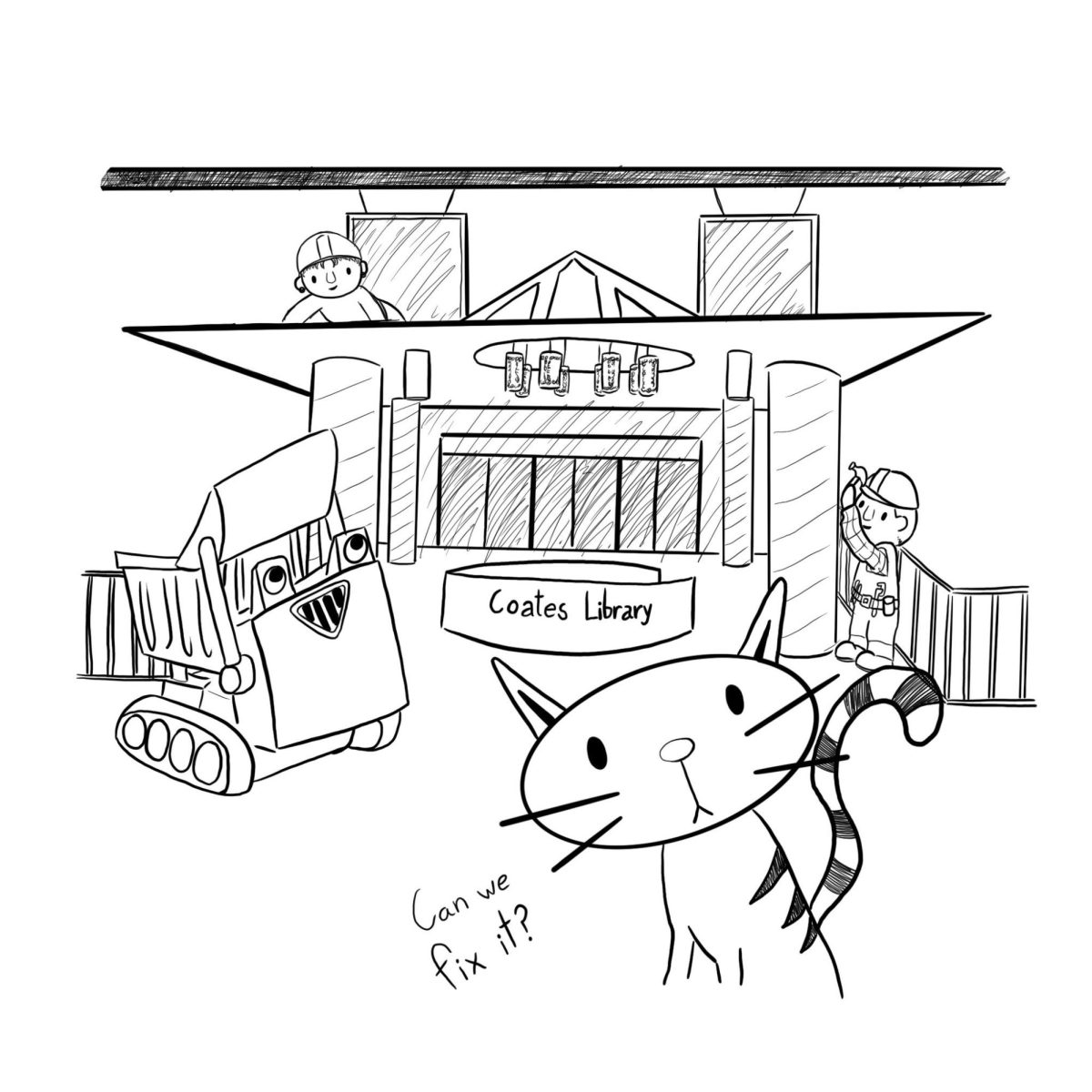

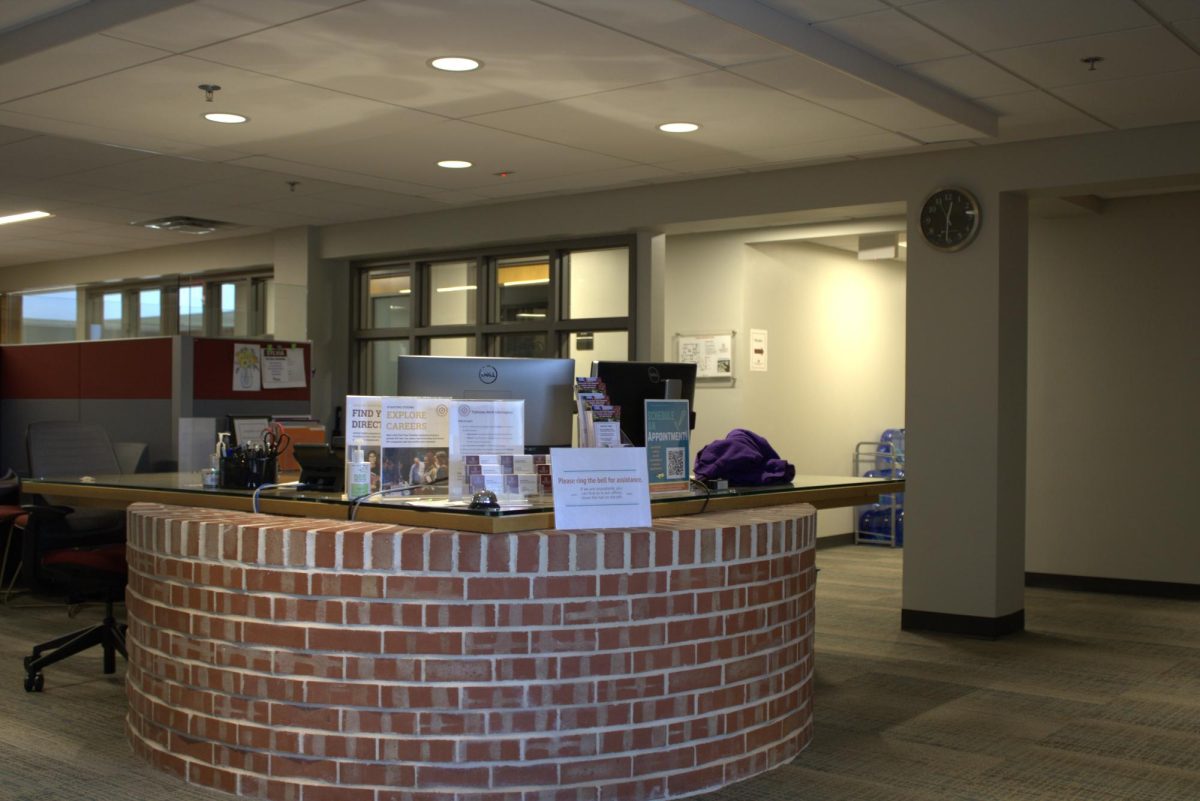
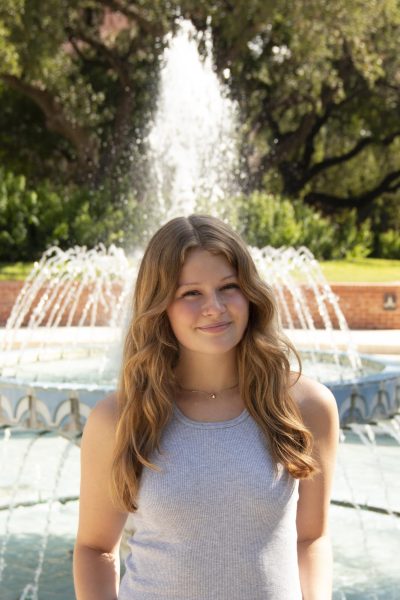
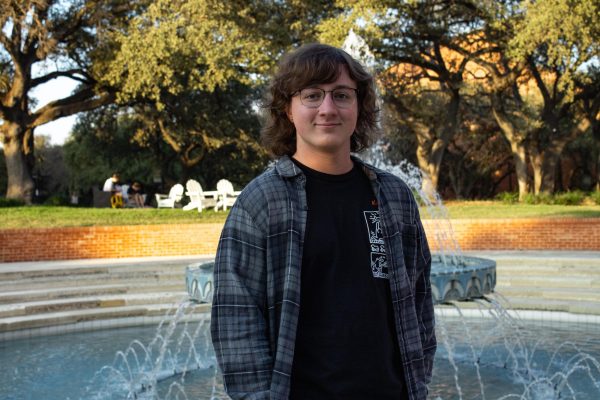
Ruth • Mar 3, 2025 at 7:40 pm
I think it’s pretty weird to write this article and not cite who, exactly, the student protestors were – Trinity’s Young Democratic Socialists of America. This would be a pretty easy thing for you to fact check, considering that we were the only student group standing outside the event. But I’d like to echo Michael’s comment – what’s so simple about this conflict that can be solved by simply listening to each other? In my opinion, it is overly-simplistic to write an article about Palestine without invoking some words like “genocide, “ethnic cleansing,” or “settler colonization” – or at least listening to people who.
Michael Bernacki • Mar 1, 2025 at 11:04 am
This conflict is not complicated. It is the result of ethnic cleansing and colonialism. It is as simple as that.